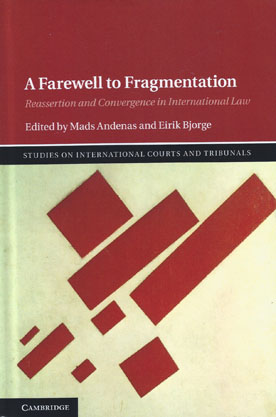
Fragmentation has been much discussed as a threat to international law as a legal system. This book contends that the fragmentation of international law is far exceeded by its convergence, as international bodies find ways to account for each other and the interactions of emerging sub-fields.
Reasserting its role as the 'principal judicial organ of the United Nations', the International Court of Justice has ensured that the centre of international law can and does hold. This process has strengthened a trend towards the reunification of international law. In order to explore this process, this book looks at fragmentation and convergence from the point of view of the centre of the International Court and of the position of other courts and tribunals.
Featuring contributions by leading international lawyers from a range of backgrounds, this volume proposes both a new take and the last word on the fragmentation debate in international law.